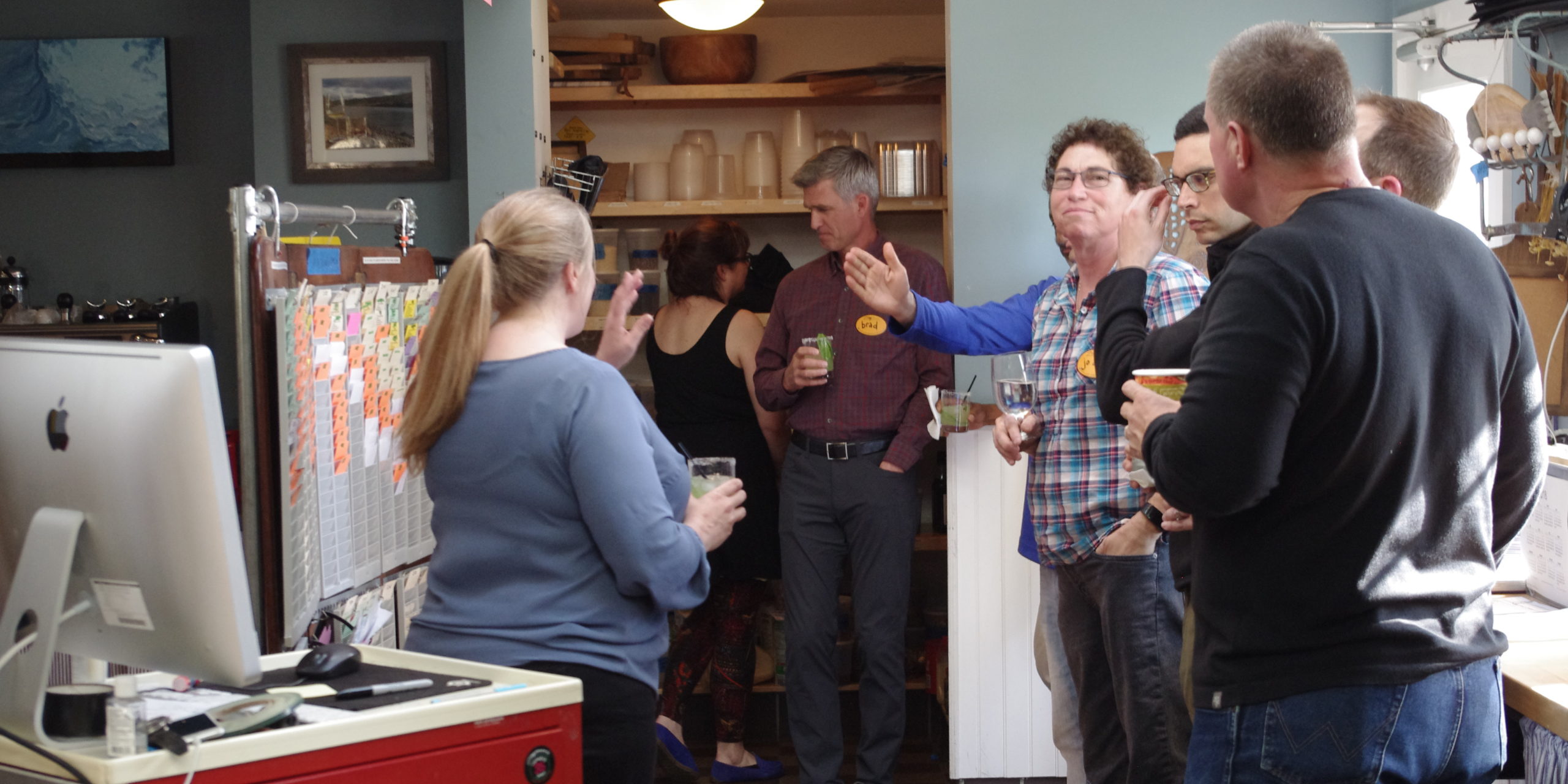
Keeping up with change in retail
FEATURE – A lean retail experiment: Carrefour Group in Brazil has started a lean journey to rapidly adapt to market changes and reach excellence in the delivery of value to customers.
Words: Renato Marinuchi and Claudio Marcelo Macedo
The organizations that stand out from the fast-changing retail sector seem to have certain characteristics in common: a great adaptability to change and a commitment to continuous improvement in their processes and services. The customer should always be the focus of their efforts. It is no longer sufficient to provide a service or sell a product: consumers want to see value in the buying experience and in the final product they are purchasing.
With this in mind, Carrefour Group, a multinational organization that employs 85,000 across its 470 locations in Brazil, understood it had to strive for a cultural transformation of the whole organization – from the front line to top management – rather than simply implementing a few continuous improvement tools.
At the beginning of 2020, the Group decided to inject Lean Thinking in its DNA and spread it across the business. They brought in a few experts as well as Lean Institute Brasil to help them achieve their first results. In this article, we are going to tell you about the first steps in the group’s lean journey.
CREATING A CENTER OF EXCELLENCE
Early last year, a Center of Excellence was created to build on the success achieved in a number of lean projects carried out in 2019. This was a strategic decision made by the Board to bring structure and alignment to the budding improvement initiative. Around the same time, one of us (Renato, followed shortly after by Vanessa Maranho) joined the improvement team with the aim to provide guidance to the lean transformation.
What makes Carrefour’s Center of Excellence different from others is that its aim is to uphold one of the core tenets of Lean Thinking - the idea that improvement is not an exclusive prerogative of the “improvement team”, but a responsibility of everyone. This is the only way to make sure improvement takes place across the business and in a sustainable way and that people take ownership of their work and of the improvement process.
This can only happen when we change our way of thinking and acting in our day-to-day activities, when leaders encourage workers and focus on their development, and when we are able to show that the new way of doing things benefits everyone involved in the process.
LEAN TRAINING
When Lean Institute Brasil started its engagement with Carrefour to coach them in their transformation, the agreement was to establish a training program for workers, to turn them into change agents of their own. Following some reflection, we identified the Practical Program of Lean Training (Programa Prático de Formação Lean in Portuguese) as the most adequate and complete for the situation.
The strategic team chose some key people from areas like accounting, supply chain, operations, maintenance, e-commerce, etc. for participation in the training. The aim of the program is to develop people’s capabilities through guided practical exercises and the creation of A3. LIB also provided coaching to the Carrefour team at the gemba, to facilitate observation and provide support wherever it might be needed.
The most pressing issues - and therefore the biggest opportunities - were chosen as subjects of the A3s. The 21 training participants were divided into nine groups of 2-3 people, each tasked with addressing one of the problems identified. It’s worth sharing an important lesson we learned here: working in teams, with people from different areas, gave everyone a more holistic and multi-functional view of the current state, reinforcing the idea that functioning as an integrated value chain - rather than individual silos - offers many more opportunities for improvement.

Rethinking the labelling process by aisle.
Besides the development of A3s, the area managers involved in the training program were invited to participate in the workshop “Leading with Respect”. The idea behind this was to ensure these leaders would be able to support change agents as best they could and to break the tendency to centralize decision-making by making front-line people more autonomous in their work and in the resolution of problems.
A big challenge the team encountered during the program was the transition from physical to digital, which was forced upon us all by the Covid-19 pandemic. A switch of such scale is never easy (people tend to resist change and struggle to understand what’s happening and what is going to happen until the first results appear), but to do so in the middle of a global crisis proved even harder. At the same time, it revealed how important it was to continue with the transformation. We had to adapt the program to the new circumstances, but we still managed to reach our objectives. And this is where we should mention another fundamental lesson learned: the importance of discipline. It became clear to all of us that keeping focused and continuing to follow the method is essential to achieve change.
RESULTS STEMMING FROM THE CHANGE
During the eight months of training, not only did the Carrefour Group develop its people in the lean methodology and tools, but they also saw practical results stemming from the projects (which some of the participants presented in the last day of the training). These results include:
- a lead-time reduction of 60% in necessary but non-value adding activities;
- an improvement in the quality of the information flowing across the business, which is now correct and complete in 90% of instances;
- a 100% improvement in the accuracy of information;
- Reduction or elimination of waiting time between stages of the process;
- Redesign of flows with a focus on the customer experience;
- New ways of carrying out indirect procurement (purchases of materials not representing the core of the business, like office or cleaning supplies) that help to reduce lead-time of deliveries and improve their quality;
- A significant reduction in the time needed to replenish products in the shops;
- New recruitment process that aims to speed up the process and boost satisfaction for employer and employee.
At least five departments have been involved in improvements of their processes until now, with 40 hours of training having reached around 450 people already. From a financial standpoint, the completion of the projects outlined in the A3s opened during the program brought the organization a potential saving of around R$3 million. There is more than just the bottom line. These improvements have not only impacted the performance of the business, but also the daily working life of many employees and the experience of our customers.
LEAN IS ALWAYS ABOUT LEARNING
Every lean journey, no matter at what stage of maturity, carries with it many challenges and obstacles. This happens because lean causes a bit of a culture shock in a business and its people, which typically generates some initial resistance and mistrust. Encountering difficulties is inevitable. Here’s a few that we found over the course of our work in the past year (they are common to every transformation that is taking its first steps):
- Communication on lean management with all workers.
- Discipline
- Understanding roles and responsibilities clearly so that improvement can become everyone's
- Systemic issues, like how we could manage change in an entirely digital environment (we lean thinkers are used to being at gemba, which the pandemic largely made impossible).
- Face the fact that many times things don’t go as expected (from there, it’s critical to put lean in practice and understand the root causes of the problem).
- Getting used to relying on the help chain and understanding how it really works in the day-to-day running of the business.
- The very implementation of the action plans highlighted by the A3s, when people are still somewhat reluctant to embrace the new way of doing things.
Nevertheless, all these difficulties are key to learning and to the acquisition of the lean experience one needs.
WE HAVE ONLY JUST BEGUN
Even though the results we have already achieved are beyond our expectations and we see great potential for the years to come, we know that our lean journey at Carrefour has just started. Lean opens up a path to countless opportunities. It’s easy to get carried away when we see initial results, but it’s clear to us that we will need patience and persistence to achieve the overall transformation of the business. We are not looking to simply give our people a bunch of tools; we want to change our way of thinking and acting.
Our recommendation for others who might be embarking their own journey? Just get started! Whether it’s a corporate program or the improvement of a process at a local level, just get the ball rolling. Start small and simple, engaging people and listening to them. Seek collaboration at all times, and don’t forget to involve your leaders from day one.
Acknowledgements
João Margenet, Director of Simplification and Robotization of Process, Carrefour Retail
Luciene Petroni, Head of Fiscal Department, Carrefour Retail
Vanessa Maranho, Continuous Improvement Coordinator, Carrefour Retail
THE AUTHORS


Read more


CASES STUDY – Struggling to win the hearts and minds of his people, the author took lean home, learned as much as he could about it and brought it back to his business with the idea of making everybody's lives easier.


FEATURE – We often spend a great deal of time and effort trying to fit our organizations into a box instead of building a box that fits our organization, says Sharon Visser.


FEATURE – We are used to seeing the organization as a mechanical entity, but how can a machine possible change and improve? We must change our mental model and learn to see the lean enterprise as a growing plant.



FEATURE – Not many people know that digital technology and the IT industry are rife with environmental waste. Discovering it and eliminating early can have beneficial effects on both the business world and the planet.

